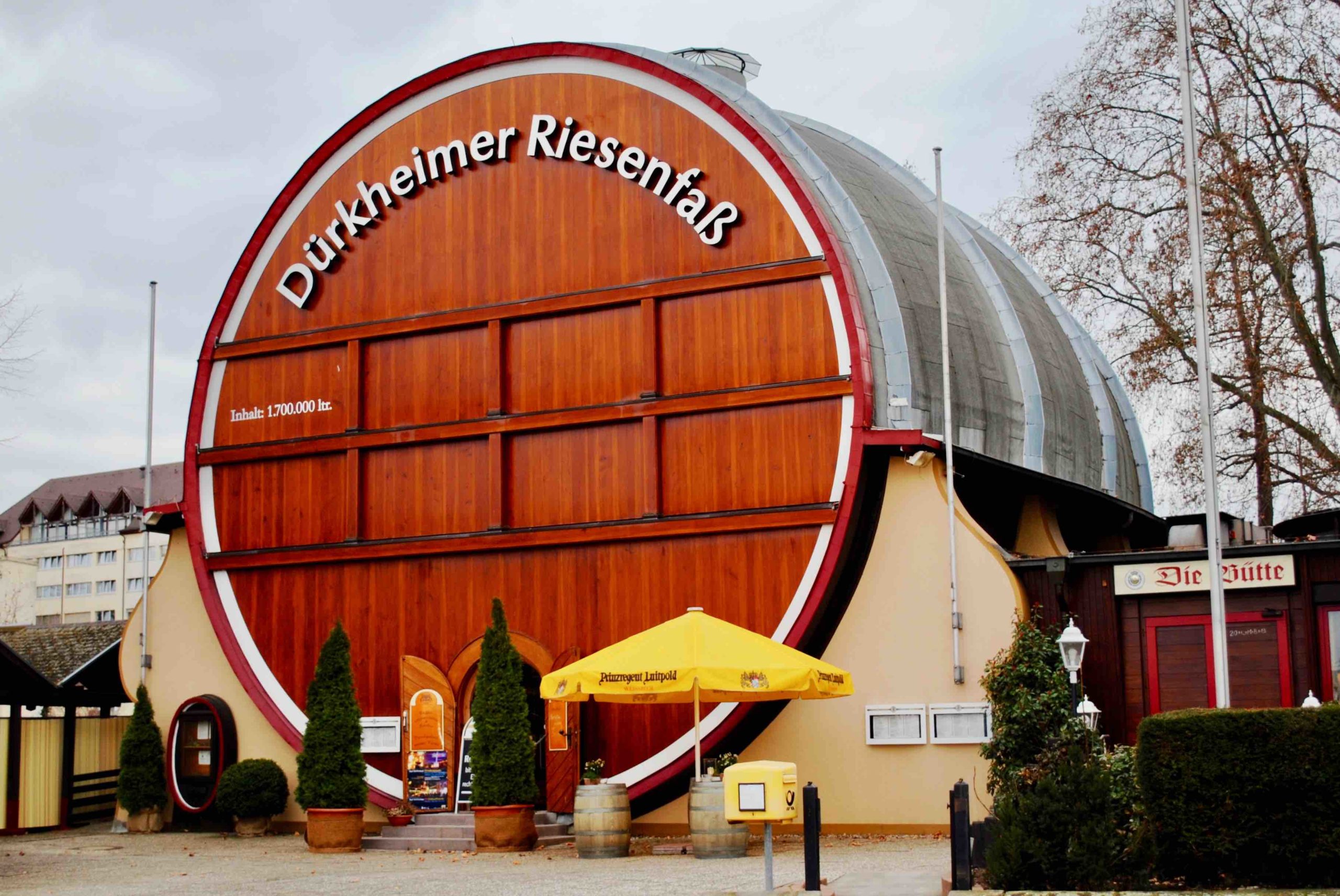If you’re searching for something good, you’ll find it by traveling to Bad Dürkheim. “Bad,” however, might not mean what you think it means. For English speakers, it translates literally as “bath.” In truth, though, “Bad” is closer to “spa” – which means water, healing and tranquility. You’ll find those things there, along with rich history, lovely parks and – in normal times – a world-class wine festival.
Why Bad Dürkheim?
Traveling to Bad Dürkheim puts you smack-dab in one of the world’s most famous wine-growing regions. Nestled in the Rhine River Valley at the foot of mighty Pfalz Forest hills, the town is a key stop on the German Wine Road. Buy a bottle of Rhine Riesling and compare it to the Mosel version you got in Bernkastel-Kues.
Relaxation is also a key word in Bad Dürkheim, and it comes in many forms. Stroll around the lovely little downtown. Stop for coffee, ice cream, pizza or something that goes well with German wine. Enjoy the tree-lined walkways and green parks. Even better: book an appointment at a spa or visit the town’s Freizeitbad for an afternoon of swimming and splashing.
Dürkheimer Essentials: The One Thing (or Two) You Have to See
Held in September, the Dürkheimer Wurstfest is an absolute must-do. It’s the Oktoberfest of winefests, even though it bills itself as an opportunity to celebrate sausage. Though that alone is magical, the event is even more so. There are rides, booths, live music, food, drink and as much people-watching as you can handle.
Make sure you also check out the Dürkheimer Riesenfass, which is a restaurant located inside of a massive wine barrel. Better yet: book a table outside the barrel so you can marvel at it while you enjoy the delicious food and friendly service.
Getting There
Bad Dürkheim is a quick 40-minute drive west of Kaiserslautern, just over an hour from Wiesbaden, and about one hour and 45 minutes from Stuttgart. Bad Dürkheim is easily accessible by train.
For U.S. government employees, including service members, remember to always follow command regulations, which may be different than host nation policies, when it comes to travel.
